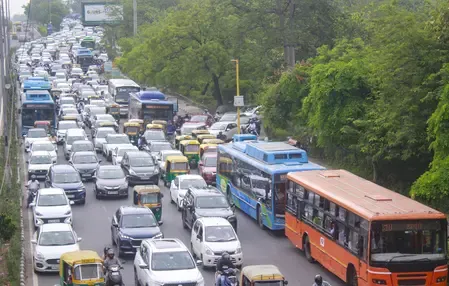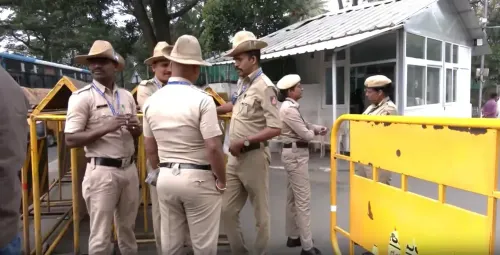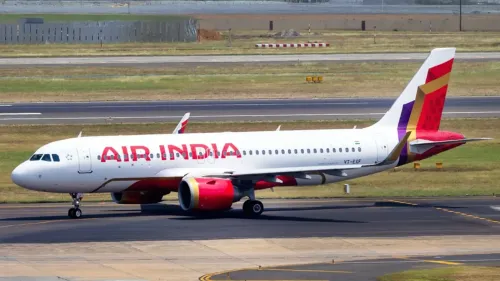Will the Supreme Court Address the Delhi Government's Challenge to the Ban on ELVs?

Synopsis
Key Takeaways
- Supreme Court to hear Delhi government's petition.
- Challenge against the ban on end-of-life vehicles.
- Calls for an emission-based regulatory framework.
- Emphasizes the need for a more nuanced approach to vehicle regulations.
- Highlights the socio-economic impact on middle-class families.
New Delhi, July 28 (NationPress) The Supreme Court is set to deliberate on a significant petition on Monday, presented by the Delhi government, which contests the comprehensive ban on end-of-life vehicles (ELVs) that are older and operating within the Delhi-National Capital Region (NCR).
This case revolves around the enforcement of a regulation that forbids diesel vehicles over 10 years old and petrol vehicles exceeding 15 years from operating on the roads of Delhi, a mandate that has had repercussions for countless vehicle owners in the area.
The Delhi government's petition requests a reassessment of the 2018 Supreme Court ruling, asserting that the age-based prohibition is not scientifically justified and unfairly impacts middle-class individuals who depend on these vehicles for necessary, limited usage.
The filing advocates for a more sophisticated, emission-based regulatory approach that takes into account the genuine environmental effects of each vehicle instead of merely focusing on age as the sole criterion.
In its appeal, the Delhi government has called upon the apex court to instruct the Central Government or the Commission for Air Quality Management (CAQM) to carry out an extensive scientific review to evaluate the actual consequences of such vehicles on air quality. The plea argues that numerous older vehicles, especially those adhering to BS-VI (Bharat Stage 6) emission standards or those that are infrequently used, produce minimal pollutants and should not face a categorical ban.
“The existing policy enforces uniform compliance without differentiating between highly polluting vehicles and well-maintained, low-usage ones,” the petition emphasizes, pointing out the uneven burden placed on lower and middle-income families.
With the nationwide rollout of BS-VI norms, recognized as the most stringent vehicle emission regulations in India, the matter has gained heightened urgency.
The Delhi government contends that many vehicles falling under the ban are either compliant with BS-VI standards or are well-kept, rendering their continued operation environmentally acceptable.
The petition also highlights the socio-economic ramifications of the ban, noting that families who rely on older vehicles for their daily commute or livelihood are now facing challenges due to this rigid policy.









